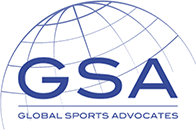Athletes devote a lifetime of training to be the best in their sport, only to sometimes unknowingly ingest a banned substance and face a career-ending ban. At that moment, your hopes and dreams are hanging in the balance, but you’re not alone. The anti-doping lawyers at Global Sports Advocates have the skills and experience necessary to help you clear your name so you can get back to competing as soon as possible.
Table of Contents: |
Banned Substances Under Anti-Doping Rules
.jpg) The World Anti-Doping Agency (WADA) was established in 1999 following a major drug scandal at the 1998 Tour de France to promote and coordinate international efforts against doping in competitive sports. WADA is charged with monitoring compliance with the World Anti-Doping Code—a global standard introduced in 2004 to ensure uniform anti-doping regulations around the world.
The World Anti-Doping Agency (WADA) was established in 1999 following a major drug scandal at the 1998 Tour de France to promote and coordinate international efforts against doping in competitive sports. WADA is charged with monitoring compliance with the World Anti-Doping Code—a global standard introduced in 2004 to ensure uniform anti-doping regulations around the world.
Under the World Anti-Doping Code, there is an extensive list of prohibited substances.
Substances Banned Both Out-of-Competition and In-Competition
- Anabolic agents
- Peptide hormones, growth factors, related substances, and mimetics
- Beta-2 agonists
- Hormone and metabolic modulators
- Diuretics and masking agents
- Non-approved substances (drugs with no approval for human therapeutic use, designer drugs, and drugs approved only for veterinary use)
Substances Banned In-Competition
- Stimulants
- Narcotics
- Glucocorticoids
- Cannabinoids
According to our anti-doping lawyers, there are also additional prohibited substances for athletes in specific sports.
Since many of the substances banned under the World Anti-Doping Code have legitimate medical uses, the WADA allows athletes to apply for and be granted a Therapeutic Use Exemption (TUE) to allow for the use of a substance that is otherwise banned.
Violations Can Involve More Than Ingesting Banned Substances
Although violations that involve the presence and/or the use of a banned substance get the most attention, an athlete can commit an anti-doping rule violation without a positive test. Below is a list from our anti-doping lawyers of rule violations under the World Anti-Doping Code:
- Presence of a prohibited substance in a sample
- Use or attempted use of a prohibited substance or a prohibited method
- Evading, refusing, or failing to submit a sample for testing
- Whereabouts failures
- Tampering or attempted tampering of a doping control
- Possession of prohibited substance or prohibited method
- Trafficking or attempted trafficking in any prohibited substance or method
- Complicity or attempted complicity
- Prohibited association
- Acts that discourage or retaliate against reporting to the authorities
Many Athletes Accused of Doping Are Not Cheaters
To the outside observer, anti-doping rules seem clear-cut—either an athlete is cheating, or they’re not. The reality is much more complex. Athletes who wouldn’t dream of using performance-enhancing substances unknowingly test positive due to inadvertent ingestion of a substance via environmental contamination, fall prey to testing errors made by laboratories, or are wrongly accused of evading a test. Consider these examples from some of GSA’s past cases:
- GSA cleared Canadian pole vault world champion Shawn Barber to compete at the Rio Olympics by showing that his positive test for cocaine was the result of a contaminated kiss with a woman the night before he was tested.
- Mexican fencer Paola Pliego was cleared of doping by the International Fencing Federation (FIE) when GSA showed improper testing procedures by the then WADA-accredited CONADE laboratory in Mexico led to a false positive for the stimulant modafinil.
- Kaliese Spencer, the 2014 Commonwealth Games 400 meters hurdles champion, faced a four-year ban after being wrongly accused of evading a drug test by the Jamaica Anti-Doping Commission (JADCO). GSA’s representation allowed Spencer to resume her career as an international athletics star by showing that Spencer was wrongly accused, leading to her exoneration.
![International anti-doping lawyer]() When it Comes to Doping Violations, You Can’t Afford to Take Any Chances. Our Anti-Doping Lawyers Can Help
When it Comes to Doping Violations, You Can’t Afford to Take Any Chances. Our Anti-Doping Lawyers Can Help
If you’ve been accused of violating anti-doping rules, you need to retain experienced anti-doping lawyers as soon as possible. The penalties for violations can include disqualification from an event, a lengthy period of ineligibility, forfeiture of prize money, and fines. Additionally, news of an anti-doping rule violation can cause widespread damage to the professional reputation you’ve worked hard to build.
At Global Sports Advocates, our anti-doping lawyers understand your passion for the pursuit of excellence and will prepare a strong defense against any anti-doping rule violation you may be facing.
Are You an Athlete Who Has Been Accused of an Anti-Doping Rule Violation?
If you have been accused of violating anti-doping rules, please contact us online or call us directly at +1-207-747-5899 to schedule your consultation with one of our International anti-doping lawyers. Our firm is devoted to the very specific practice of sports law and has represented athletes from over 50 countries spanning nearly every sports category. When it comes to anti-doping rule violations, you simply can't afford to take any chances. Not only is your career and reputation at stake—so are your lifelong dreams. Don't hesitate. Contact our anti-doping lawyers today.

 When it Comes to Doping Violations, You Can’t Afford to Take Any Chances. Our Anti-Doping Lawyers Can Help
When it Comes to Doping Violations, You Can’t Afford to Take Any Chances. Our Anti-Doping Lawyers Can Help